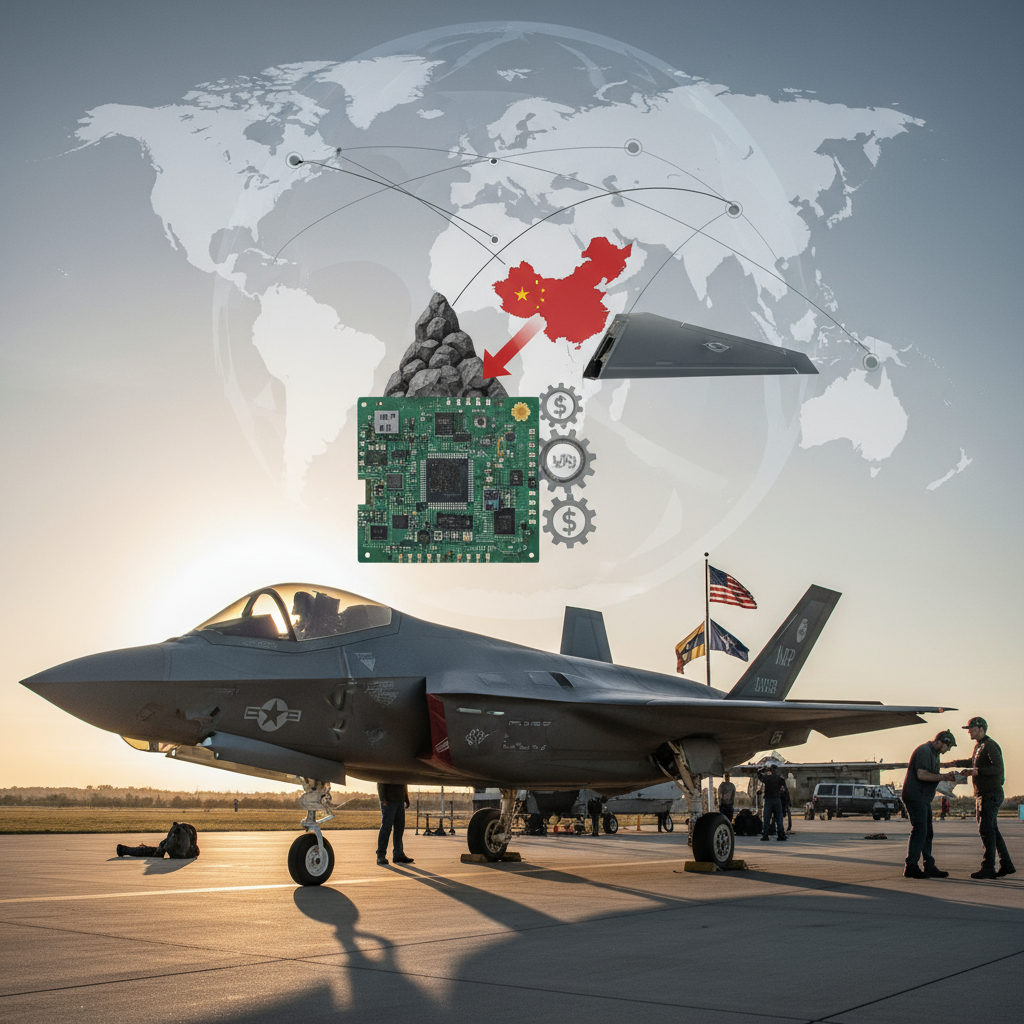Physical Address
304 North Cardinal St.
Dorchester Center, MA 02124
Physical Address
304 North Cardinal St.
Dorchester Center, MA 02124
Global aviation news tracker
Global aviation news tracker

China’s rare earth monopoly is slowing the F-35 Block 4 upgrade and raising fresh readiness questions.
The F-35 Block 4 upgrade — the next major software and hardware refresh for the Lockheed Martin F-35 Lightning II — is facing delays and higher costs because of bottlenecks in rare earth minerals that are essential for modern avionics and sensors. On September 15, 2025, defense planners flagged supply-chain dependencies that could push timelines for US and allied air forces.
Block 4 is intended to add new sensors, weapons integration and improved electronic warfare capability for the F-35, the world’s most expensive fighter program. But many of the tiny components that give those systems their edge rely on rare earth elements, where China currently dominates extraction and processing globally.
Dependence on a single source for materials creates strategic risk: manufacturers report longer lead times and rising procurement costs for magnets, specialty alloys and other components used in sensors and actuators. That ripples into testing schedules, certification milestones and retrofit work for F-35 fleets operated by the US, NATO allies and other partners.
Industry and defense officials are weighing mitigation steps: diversify suppliers, stockpile critical components, and accelerate domestic and allied processing capacity projects. These options take time and money, and they won’t remove near-term pressure on the upgrade program.
For air forces counting on Block 4 to maintain a technological edge, the rare earth crunch is a reminder that high-tech military capability is only as strong as its supply chains. Expect program offices to issue more schedule updates as procurement teams seek alternative sources and governments consider strategic interventions.